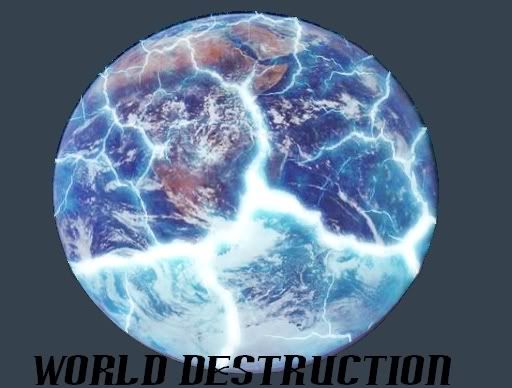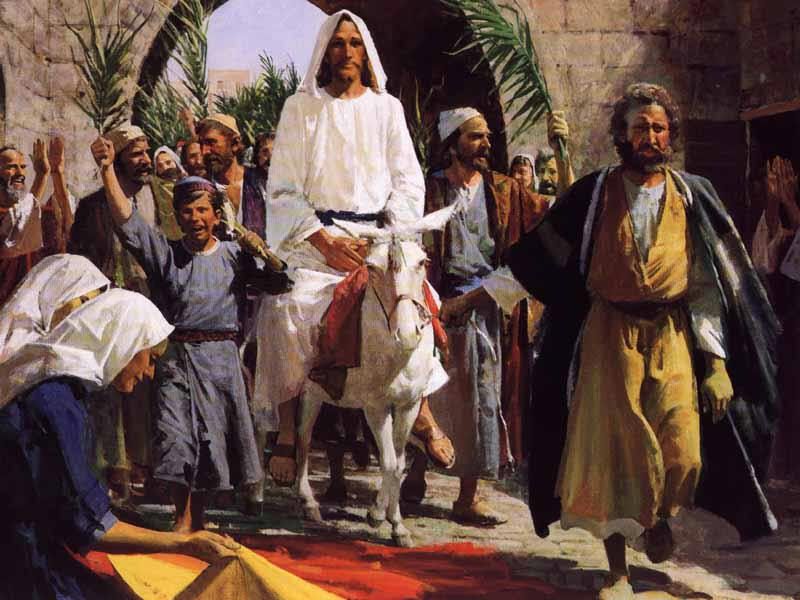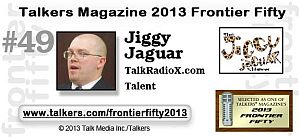PROPHETIC SIGNS THAT WE ARE IN THE END TIMES
Prophetic Signs that we are in the End Times
The Bible gives many examples of signs that should warn us of the coming end of the age. Jesus gives six such signs Paul gives two characteristics, and eleven other occurrences are given by the prophets to occur prior to or soon after the end of the age. While we are also told we will not know the time of the End, God obviously wanted us to know when that time was getting closer. The Christian church is increasingly drawn into the interfaith movement and more and more churches go into isolation. While they are preparing to sleep through the growing attacks on their faith, perhaps God knew it would take a few signs to wake us up and remind us that we have work to do.
Unfortunately, many Christians take the verses that tell us we won’t know the time of His coming to mean they should ignore any and all scripture that might warn us of this time of tribulation. Others have fallen into the trap of fearing being labeled a “conspiracy theorist” should they display an interest in the Biblical prophecies about our future on Earth. My philosophy is simple. God included it in the Bible and, since God is all knowing, we should trust that it is something we should know and study along with the rest of His Word.
It is increasingly obvious that the time of our Lord’s coming is drawing near. Prophecy is being fulfilled daily, and at a faster pace than ever before. Whether you believe in a pre-tribulation rapture, or believe Christians will be witnesses to the full tribulation, wrath, and final judgments, matters not. The beginning of birth pains and the signs of the times should have the same effect on all of us. It should motivate us to save as many souls as we can in the time that we have left. The Great Commission tells us to be disciples to all nations, bringing the message of salvation through Christ to all people. If the Church is raptured before the tribulation, it is important that we leave behind an explanation for the trials and judgments those left behind will face. How else will they recognize the deception of the anti-Christ and seek instead the truth of the Bible? If we are to endure the tribulation along side them, we will need to be prepared to not only share the message of salvation, but share with them the reasons for God’s judgment and hold it up as further proof of their need to be saved.
Below is a study of the prophetic signs God gave us as a warning of the approaching end of the age. Many of them are being fulfilled now and many will be fulfilled in the near future. I would encourage you to study prophecy, know what is coming and be prepared to share it with others.
SIX SIGNS GIVEN BY JESUS TO INDICATE HIS COMING AND THE END OF THE AGE
Matthew 24:5 “For many will come in my name, saying, I am Christ, and will mislead many.”
Matthew 24:11 “And many false prophets will arise, and will mislead many.”
6. THE GOSPEL WILL BE PREACHED THROUGHOUT THE WORLD
TWO CHARACTERISTICS OF THE END OF THE AGE FROM THE APOSTLE PAUL
1. GODLESSNESS IN THE LAST DAYS
2. APOSTASY (FALLING AWAY FROM THE FAITH)
ELEVEN FULFILLMENTS OF BIBLE PROPHECY REQUIRED FOR THE END OF THE AGE
1. EXISTENCE OF A 200,000,000 MAN ARMY IN THE EAST
An army of that size had never existed until China’s army reached that number in the 1960’s.
2. REDEVELOPMENT OF THE ROMAN EMPIRE (EUROPEAN COMMUNITY)
3. RETURN OF THE ONE PURE LANGUAGE, HEBREW, TO ISRAEL
4. REBUILDING OF THE TEMPLE, RESTORATION OF TEMPLE WORSHIP AND ANIMAL SACRIFICES IN JERUSALEM
For several end time prophecies to be fulfilled, the temple will have to be rebuilt.
5. APPEARANCE OF THE RED HEIFER AFTER 2000 YEARS
6. INCREASE IN KNOWLEDGE AND TRAVEL
7. RETURN OF THE ETHIOPIAN JEWS TO ISRAEL
9. RETURN OF RUSSIAN JEWS TO ISRAEL
10. TECHNOLOGY FOR THE MARK OF THE BEAST
11. PLANS FOR THE ONE WORLD GOVERNMENT
12. INSTANT COMMUNICATION AROUND THE WORLD
Luke 21:32 “Truly I say to you, this generation will not pass away until all things take place.”
Categories: Politics & Religion Tags:
What Lies Ahead
I would like for each of you to close your eyes. Now imagine for a moment if you will the best time that you have ever had in your life and how you felt at that moment. Keeping your eyes closed, please imagine the worse time of your life and how you felt at that moment. The way you felt in your best time doesn’t compare with the peace, love, and joy you feel once you have come into the full glory of Jesus Christ. The way you felt in the worse time doesn’t compare with what lies ahead in our Christian walk of faith.
The fact is that very few professing Christians study their bible. Oh, we may read maintenance manuals, flower/garden magazines, playboy, or whatever, but not the bible. It sits on the shelf gathering dust. Be assured the bible paves the map for our road to salvation and beyond. We read all sorts of material but we do not study for ourselves the Word of God. We leave our spirit welfare to the Pastor. However, you are the only one responsible for your own salvation. We must test everything and hold onto what is good.
One religious survey conducted by the Los Angeles Times concluded that 2/3 of Americans do not read the bible regularly and can’t name the four gospels. More then half of Americans can not name 5 of the Ten Commandments. And many say the bible is irrelevant. Many believe that Jesus’ last name was “Christ”. What a shame!
Most people have just accepted their religion passed down by their families. Most have just “gone along” beliefs and traditions taught to them as children. Brothers and sisters, one better get into the bible, study, and show ones self approved.
We live in a prideful and sinful world. It’s full of greed, hate, segregation, racism, demonic forces, and so much evil. The church (body of Christ) has dissension with-in the church. Walls have been built between different denominations because of by-laws (man-made rules). There is so many sinners’ indulging in every imaginable aspect of sin. It’s time for sinners, lukewarm Christians, and those that have turned their backs on God to change. It’s time for revival in the Church and awakening of “God consciousness” in our nation!….
*God is holy and righteous (Rom. 1:17)
*Man is sinful and his heart is evil (Gen. 6:5; 13:13; Jer. 17:9).
*All people know that God exists (Rom. 1:21)
*All people have sinned (Rom. 3:23a)
*All people are guilty before God (Rom. 1:18-3:8)
*Judgment is self-induced (Rom. 1:18-23)
*Sin dishonors God and contradicts His Holy character (Rom. 1:17)
*God will judge every person, Jew and Gentile (Rom. 2:5; 2:12-16)
*God never forgives any sin without full payment of the penalty for that sin (Rom. 3:25)
*Propitiation is the only saving solution to the fact of God’s wrath against sin. Propitiation is the appeasement of divine wrath by a sacrificial offering. Sending Christ to die for our sins was God’s amazing solution to the problem of how He could remain just (punish all sin) and still justify us (declare us perfectly righteous in His sight) (Is. 53:4, 5, 10, 11; Rom. 3:25)
*The gospel of salvation is a free gift that cannot be earned (Rom. 1:16, 17; 3:20, 23, 24, 28, 30; 4:5: 6:23)
*Saving faith can only come through hearing and believing the Bible’s message about Christ (Rom. 1:16; 10:14-17)
*Justified means to be declared righteous in God’s sight (Rom. 3:24)
*God imputes (imparts) righteousness to those who believe (Rom. 4:3, 4, 5, 8, 9, 10, 11, 22, 23, 24)
*Believers, who have been freely forgiven of sins because of Christ’s work, will be given degrees of reward in heaven. This is according to their actions in this life; heaven is the eternal home of born-again believers (Rom. 3:21-26; Mth. 16:27; 25:31-46; John 5:29; Rom. 14:10-12; 1 Cor. 3:10-15; 2 Cor. 5:9, 10; Rev. 7:15-17)
*Those who reject Christ will be judged for their sins. The consequences of willful disobedience are horrible indeed. The Bible speaks of an endless, conscious torment in hell (Rom. 2:6; Rev. 20:10, 15)
The truth is clear. Modern “Christianity” has become vastly different then “Christianity” of Jesus’ day. That is why we have over 400 denominations, all proclaiming to be Christians. Which Church is right? Which denomination is right? The right church and denomination is the one preaching and teaching Gods Word. It is the body of Christ, spirit filled, Holy Ghost led, a loving congregation, and a Pastor that is not afraid to step on toes in a loving manner.
We are living in a very troubled world. Although the Bible explains in Daniel and Revelation what is going to happen, and therefore we should not be surprised, there is still fear and apprehension about the future.
First, God loved us so much that we were created in his image. We were given a free will and a free choice. He even gave the angels free will and choice. That choice is what made Lucifer (the devil) and a third of the angels decide to rebel against God. God does not to force us to love him. He wants us to love him because he first loved us.
Not only did God create us in his image, He stated that we would have dominion over all the earth. But, since the beginning, man has ruined God’s perfect world and let sin come into world at the Garden of Eden. Now God could not destroy Satan because of evil. If God had destroyed Satan, man would have died because we are sinful creatures. All sin would have been destroyed had He destroyed Satan. So God came up with another plan. He would offer the purest of lambs to wash away sin. So he gave his only begotten son, Jesus, to die on the cross for us.
On one hand, science and technology promises a world of great prosperity. Yet, on the other hand, nuclear war and biological and chemical warfare threaten the very existence of our world. Since the United States is morally, socially, and financially bankrupt, along with the terrorists attacks, has made our great country a pawn. We are no longer the worlds superpower nation. We are now number 3. Those in power are North Korea and the European countries. Let’s not forget China with over 2,000,000 soldiers. This is the largest army in the world.
So according to scripture, what lies ahead for the United States.
A great charismatic leader in Europe will arise, responding to the world’s crisis. He will enter into an alliance of church and state that will offer peace, security and prosperity to a desperate world. The world will be in total confusion and darkness. The world will not see the light because it has closed its eyes, hardened its heart, and closed deft ears. Further, the world has turned its back on the true God completely and worships the Anti-Christ.
This leader, using lies, deceit, and intrigue, will induce ten European leaders, representing the end time successors to both the eastern and western parts of the Roman Empire, to unite temporarily and give their power to him.
A period of world peace and prosperity will follow. Worldwide trading will seem to offer incredible profits to cartels. Later, responding to crisis involving both the Middle East and the English speaking nations, he will move with lightening speed and determination. He will nullify the treaty made with the Jewish State and attack Jerusalem. Half of the city will be in exile and the women will be raped (Zechariah 14-2). An overwhelming army will attack the United States, Britain, Canada, and other English speaking countries.
The intensifying problems of global fracturing will be countered by a scheme designed to impose both political and religious unity on a worldwide scale. Though important developments will occur in the political world, it is the area of religion that we will see events like never seen before. This is when one world religion will begin.
By this time, millions across the world will be caught up in Political/Religious frenzy fed by a charismatic leader working great signs and wonders. These individuals are more into feeling good then following true doctrines of the Holy Bible. They will respond to this leader and turn from God. Many will say he is God!
Modern technology will be used to create a police state that Hitler and Stalin could only dream about. A powerful war-making apparatus will be brought in by the European superpower and it will be classified as the cornerstone to world peace and security. People will accept this as the price of getting rid of terrorism and violent crime.
At first, this system will improve world economy and world trading (Ezekiel 27 and Revelation 18). However, the Arab World will be displeased by attempts to force them into Religious unity with Europe, which will be a false religion. A powerful ruler (Daniel 11), called “king of the south” will arise. He will bring temporary unity of much of the Islamic World. Provoked by this leader, Europe will launch an attack resulting in European occupation of much of the Arab World (Daniel 11:40-43).
This European occupation will deepen suspicion among the eastern nations. European nations will attack the eastern nations to force them into submission. The resulting warfare will cause the nuclear destruction of much of Europe, including Rome itself (Rev 18:10, 17)(Rev 9:13-18)
Horrifying weapons of mass destruction, including nuclear weapons as well as biological and chemical weapons (Rev 9:5-6, 18) will be unleashed. With millions dead and the world turned upside down, and when it appears that humanity will destroy itself, the living glorified Christ will return from heaven (Matt: 24:22).
In the after math of all this destruction, Jesus Christ will stand on the Mount of Olives. God will establish a kingdom that shall never be removed (Dan 2:44). The law will go forth from Jerusalem and all nations will be brought under the government of God (Isaiah 2:2-3).
The bible records two cities, Babylon and Jerusalem. One will be destroyed forever. The other will be created anew as the new Jerusalem
Which will come down from heaven after the 1,000-year reign of the Messiah. This will be the dwelling place for the Father, for Christ, and for the first fruits for all eternity (Rev 21)
As we watch the world unravel around us, do not be discouraged. Jesus Christ exhorts his true followers.
What I have told you is not a fantasy. It is going to happen within the lifetime of many sitting here. Scripture states that once Israel becomes a nation, that generation will not pass away without seeing the coming of the Lord. Israel became a nation in December 1948.
Christians will be forced to gather in-groups of 2 or 4. Many will be killed like the days of old by Saul who later became Paul. Stand fast – hold onto your faith. For those who stand fast now will receive great blessings and eternal life.
Like Deacon says. You better be prayed up and fed up with the Holy Spirit.
In closing, the advent of Christ and the Anti-Christ will be as follows:
1. Satan will appear as a man in the person of the Anti-Christ because he seeks to reign as king over mankind and desires to focus the worship of God upon himself.
2. The Anti-Christ will come from the Middle East and he will be a Jew. He will set himself a throne in Jerusalem in the rebuilt Temple of Solomon. He will be the “ abomination of desolation” spoken of by Jesus and David.
3. The Anti-Christ is the “little horn” of the forth beast mentioned in Daniel 7. He will slay three of the 10 kings (3 horns) and reign as the eighth with the remaining seven.
4. He will achieve his objectives in the middle of the final seven-year period of this age. He will be accepted as king of the Jews and reign from his seat as God.
5. He will deceive most of the world that he is God. He will persecute those that refuse to worship him. Although thousands of thousands will be slaughtered, the world will close its eyes.
6. Jesus Christ will return to earth at the end of the 3 ½ year reign of the Anti-Christ, destroying Satan’s kingdom.
Satan will use any means he can to bring us down as well as the world. He is bringing down the United States of America. There are basically 5 areas in which Satan is attacking America.
1. Destroy the moral Fabric of America: doing a masterful job of confusing the Pastors, intellectual leaders, and educators.
2. Undermine the Family: Most realize that strong families are the basis of every decent society that has ever existed.
3. Destroy the Economy: destroy honesty and hard work.
4. Denigrate Patriotism and a National Sense of Purpose: Done away with things like Pledge of Allegiance and Star Spangled Banner.
5. Control the Media to Promote All of the Above: The media is being used to undermine the concepts of patriotism, true Christianity, the family, and almost every aspect of a decent life.
Where do you stand? Are you a sinner and you feel something tugging at your heart? That’s God my friend! Are you a lukewarm Christian? If so, God will spew you out. Spew meaning vomit. Are you not totally sure of your salvation? Are you standing where you want to be with God? If you fall into one of these areas, please don’t wait. Come to the altar. Come to the altar now.
Categories: Politics & Religion Tags:
School Science Project Causes Evacuation
SAN DIEGO — Students were evacuated from Millennial Tech Magnet Middle School in the Chollas View neighborhood Friday afternoon after an 11-year-old student brought a personal science project that he had been making at home to school, authorities said.
Maurice Luque, spokesman for the San Diego Fire-Rescue Department, said the student had been making the device in his home garage. A vice principal saw the student showing it to other students at school about 11:40 a.m. Friday and was concerned that it might be harmful, and San Diego police were notified.
The school, which has about 440 students in grades 6 to 8 and emphasizes technology skills, was initially put on lockdown while authorities responded.
Some comments from me:
Both the student and his parents were “very cooperative” with authorities, Luque said. He said fire officials also went to the student’s home and checked the garage to make sure items there were neither harmful nor explosive.
What? Searched the student’s home? Surely they got a search warrant? Probably not. I’d guess that there was an implied threat of punishment from school officials if the student’s parents didn’t cooperate.
“There was nothing hazardous at the house,” Luque said.
Even if there were, the house is not the school so it’s irrelevant.
The student will not be prosecuted, but authorities were recommending that he and his parents get counseling, the spokesman said. The student violated school policies, but there was no criminal intent, Luque said.
Why should the student need counseling? Sounds to me like the school doesn’t really want the students to think for themselves. Isn’t this a TECHNICAL SCHOOL?
“There will be no (criminal) charges whatsoever,” Luque said.
There should be criminal charges filed against the school officials for being dumb asses.
Police and fire officials also will not seek to recover costs associated with responding to the incident, the spokesman said.
And if they do seek cost recovery, they should seek it from the school, not the student.
Luque said both the student and his parents were extremely upset.
No shit? Good thing that didn’t happen to my kid. Extremely upset would have been an understatement!
“He was very shaken by the whole situation, as were his parents,” Luque said.
Well yeah. This is a technical school. He did a technical project and it invoked an unneccessary reaction from an unintellegent school official. This guy needs to be fired ASAP.
Categories: Al's News & Reviews Tags:
John – Chapter 13
The opening verse of chapter 13 sets the scene for the whole of chapters 13–17. Love is one of the key terms in chapters 13–17, occurring thirty-one times in these five chapters as compared to only six times in chapters 1–12. Jesus now shows his disciples the full extent of his love. Love is the laying down of one’s life, and therefore to love completely means to love to the end of one’s life. The love that has been evident throughout continues right up to the end. At the end, in the crucifixion, we will see the ultimate revelation of that love, that is, its full extent.
This is now the third Passover mentioned. The shadow of the cross has been evident from the very outset through the references to Jesus’ hour. Jesus now knows that his hour has arrived. John emphasizes the context of the Passover, for the lamb is about to be sacrificed for the sins of the world. That is part of the story, but it is also the occasion for Jesus to pass over from this world to the Father. This theme of departure and return to the Father will be developed at length in the teachings that follow.
While this first verse introduces the whole section through chapter 17, it also introduces the account of the foot washing in particular. For the love that is evident in the laying down of life at the crucifixion is also demonstrated in the laying down of life in humble service in the foot washing. In the foot washing we have “an acted parable of the Lord’s humiliation unto death”.
The next three verses (13:2-4) introduce the foot washing itself. Jesus got up from the meal, took off his outer clothing, and wrapped a towel around his waist. The verb used for took off is not the usual word for this idea. Perhaps John intends an allusion to Jesus’ imminent lying down of life, since this verb is used for that idea elsewhere. Similarly, the word used for taking up his garments was used to describe his taking up his life again. So perhaps through the language he uses, John is connecting these two events of great humility.
John notes that the devil had already prompted Judas Iscariot, son of Simon, to betray Jesus. This is the first of several references in this section to the betrayal, which will be the focus of the next section. It is extremely important to realize that Jesus is going to wash the feet of one who is considering betraying him. Judas has not yet given in to the temptation, but the devil has prompted him, or more literally, “put it into his heart.” This is the first step in a sequence that temptation follows, according to the teachers of the ancient church. This is known as “provocation,” the initial idea. It is wise to reject the thought at this point because the temptation is at its weakest and one is not yet guilty of sin. If this salesman is at the door, it is best to ignore the knocking.
Jesus’ own awareness and knowledge is also an important part of the context of the foot washing. He knew that the Father had put all things under his power and that he had come from God and was returning to God. This knowledge does not simply give Jesus the security to wash the disciple’s feet–his sharing in the divine essence is what leads him to wash their feet. Jesus said that he only does what he sees the Father doing (5:19), and this foot washing is not said to be an exception to that rule. John’s introduction to the event ensures that we understand God’s glory is revealed in Jesus in this sign. This is what God himself is like–he washes feet, even the feet of the one who will betray him! Thus, the foot washing is a true sign in the Johannine sense, for it is a revelation of God.
Having taken off his outer garment, Jesus was left with his tunic, a shorter garment like a long undershirt. Slaves would be so dressed to serve a meal. Jesus tied a linen cloth around his waist with which to dry their feet, obviously not what one would expect a master to do. A Jewish text says this is something a Gentile slave could be required to do, but not a Jewish slave. On the other hand, foot washing is something wives did for their husbands, children for their parents, and disciples for their teachers. A level of intimacy is involved in these cases, unlike when Gentile slaves would do the washing. In Jesus’ case, there is an obvious reversal of roles with his disciples. The one into whose hands the Father had given all now takes his disciples’ feet into his hands to wash them.
Slaves were looked down upon in the ancient world, and Peter cannot stand the thought of his teacher doing the work of a slave. It would have been appropriate for one of the disciples to wash Jesus’ feet, but the reverse is intolerable. In the Greek both pronouns, you and my, are emphatic. This response expresses Peter’s love, but his is a defective love. It lacks humility, which is one of the essential attributes of discipleship according to this Gospel. Indeed, humility is the very thing illustrated in Jesus’ present action. In Peter’s response we see the pride and self-will that is at the heart of all sin and that is the very thing for which the cross will atone and bring healing. Peter is working from a worldly point of view, and not for the first time.
Jesus realizes this act is scandalous and mystifying, given their current ignorance: You do not realize now what I am doing, but later you will understand. On one level, Jesus’ act is an example of humility, and they are expected to grasp this point. But as with most of what Jesus has said and done, they will fully understand this event only after the cross and resurrection and the coming of the Spirit, who will lead them into all truth.
In response to Peter’s rejection Jesus says cryptically, Unless I wash you, you have no part with me. The word for part can be used of one’s share in an inheritance, though other words are more commonly used for this idea. If Peter is to have a share with Jesus in his community and the eternal life that comes through faith in him, then Jesus must wash him. Since this is Peter’s greatest desire he responds, Then, Lord, . . . not just my feet but my hands and my head as well! Again we see his love, but again there is still a strong element of self. He is not simply receiving with humility what the Lord is saying and doing. Peter at this point is an example of religious enthusiasm that is really a manifestation of the unregenerate self rather than of genuine discipleship. He has not discovered the depths of his own brokenness and selfishness and thus does not have a solid foundation in reality to build on. His denial of Jesus, soon to be predicted by Jesus, will tear down his pride and clear the way for the genuine humility that is necessary for any real spiritual life.
So Jesus must further correct Peter and thereby give more insight into his scandalous act: A person who has had a bath needs only to wash his feet; his whole body is clean. And you are clean, though not every one of you. People would bathe before going to a special meal, but their feet would get dirty on the way since they wore sandals. Here, as in verse 8, Jesus is addressing Peter as an individual, but by implication he is also addressing each of the disciples. Jesus must wash him, or else he is not clean and has no share with him. What does this washing refer to? Some think it is a reference to his death, which will make possible a sharing in eternal life with Christ. The foot washing would then be a symbol of the cross. Others think that the bathing is the cleansing from sin on the cross and that the foot washing would refer to the forgiveness of one’s daily sins. Many, both in the ancient church and today, note that the word wash is from a word family commonly associated with baptism (Acts 22:16; 1 Cor 6:11; Eph 5:26; Tit 3:5; Heb 10:22) and thus take this washing as baptism.
But how can these disciples be said to be clean when the sacrifice for sin has not yet been offered and the Spirit has not yet been given? Perhaps Jesus is speaking as if the crucifixion and resurrection have already been accomplished. Or perhaps Jesus is referring to being made clean by his word. Such cleansing would refer to their receiving the light of revelation that Jesus has offered, accepting him and his teaching as having come from God and thereby becoming one with him to the extent that this is possible before the cross, resurrection, ascension and coming of the Spirit. They are “with him” as members of his community, though Peter’s attitude in this very passage shows they are not yet fully of Jesus’ spirit. The foot washing would then symbolize further teaching. Indeed, the foot washing would itself convey something of the further teaching of which it was the symbol: they have received him as the one come from God, and now he reveals more clearly the love that characterizes the Father.
Although Jesus is speaking to Peter he is also speaking to the disciples as a group. They have formed a community with him as their head. It is as if, as Paul spells out, they are his body and his own body needs to have its feet washed. He has cleansed his body of disciples through his teaching and deeds that have attracted some and scandalized other. But his body is not yet entirely clean: For he knew who was going to betray him, and that was why he said not every one was clean. Judas was unclean himself in the sense that he has not received Jesus with true faith, and he is himself an unclean presence among the body of believers that has yet to be cleansed. Judas’s cleansing from the body of believers is about to take place.
Jesus’ reference to his betrayal is an act of judgment toward Judas, who must know he is the one, referred to since the thoughts are already in his mind. As such it is also an act of grace. It reveals clearly the nature of the deed he is contemplating, thereby perhaps giving him a chance to think again.
After Jesus finishes washing their feet, he puts his outer garment back on and returns to his place, asking, Do you understand what I have done for you? They will not completely understand until they have seen the cross, but they can at least grasp his act as an example of humility. The cleansing word that they have received includes the recognition of Jesus as Teacher and Lord. Jesus affirms that this is indeed his identity. The humility he is exemplifying is not a false humility. True humility is always grounded in the truth. But although they have grasped something of Jesus’ identity, they now need the further cleansing that comes through a revelation of the nature of Jesus, whose authority they recognize. Jesus’ understanding of the characteristics of a teacher and a lord is quite different from those of the disciples and their culture.
While they are reeling from this embarrassing event, Jesus spells out the implications for their own lives of what he has done: Now that I, your Lord and Teacher, have washed your feet, you also should wash one another’s feet. I have set you an example that you should do as I have done for you. What does Jesus have in mind? Some have established a foot washing ceremony, either as a separate service or as part of the Maundy Thursday service. Jesus, however, does not say to do “what” he did but “as” he did. The cleansing and the further foot washing are symbolic of the revelation that Jesus gave of the Father, and thus the disciples are called upon to embody this same revelation. The disciples are to pass on the same teaching that he, their teacher and Lord, has done by conveying as he has, both in word and deed, the selfless love of God. The community Jesus has brought into being is to manifest the love of God that he has revealed through serving one another with no vestige of pride or position. There will be recognized positions of leadership within the new community, but the exercise of leadership is to follow this model of being a servant.
If Jesus takes the role of servant, then the slave of such a master should expect to do the same. Jesus does not add nor is a messenger greater than the one who sent him, bringing in the theme of mission. Jesus is the one sent by the Father, and Jesus will send the disciples. Jesus has been submissive to the Father, and the disciples are to be under the authority of Jesus. The pattern of life exemplified in the foot washing is true blessedness, contrary to what the world, which is centered in pride and selfishness thinks. Accordingly, he says, Now that you know these things, you will be blessed if you do them. The Gospel is a life to be lived and not just an ideal to be contemplated.
Jesus then makes another allusion to his betrayer: I am not referring to all of you; I know those I have chosen. Some think Jesus is referring to the election to eternal life, but he is referring to his historical choice of the Twelve. John shows us that the betrayal need not raise doubts about Jesus’ identity for he knows the character of each one. The betrayal is not going to catch him by surprise. Indeed, it has been spoken of in Scripture: But this is to fulfill the scripture: “He who shares my bread has lifted up his heel against me”. As with most fulfillment texts, this is not an explicit prophecy that has now been fulfilled; rather we have a pattern from the Old Testament now repeated. The figure of David as the sufferer in Psalm 41 is seen as a pattern, or type, of Jesus. The psalm describes betrayal by a close friend. Lifting up the foot to expose the sole is an especially offensive gesture even today in the Middle East. Not only does the betrayal by Judas not cast doubts on Jesus’ identity, it actually affirms that he is a fulfillment of the Davidic type.
The betrayal itself does not begin until verse 27, so Jesus gives the psalm as a prophecy. Jesus’ foreknowledge of the event is emphasized and is even evidence of his divinity, that he is the I AM. The common Old Testament idea that God and his true prophets are known by their ability to foretell events is seen to be true of Jesus. He continues to give the word that cleanses his disciples by revealing himself to be the revealer of God. Thus the betrayal story itself bears witness to Jesus in three ways, namely, through his preternatural knowledge of his disciples, through the witness of Scripture and through his own prediction.
After his use of the divine name in reference to himself, his return to the theme of mission is striking: I tell you the truth, whoever accepts anyone I send accepts me; and whoever accepts me accepts the one who sent me. To accept the messenger is to accept the sender, following the principle that “a man’s agent is like to himself”. Jesus gives his own mission and that of his followers “an absolute theological significance; in both the world is confronted by God himself”. Seen in the context of the foot washing, this statement of the dignity of the Christian witnesses is not an expression of power and authority in any worldly sense. The one who represents Christ by bearing the same self-sacrificing love of God will meet with the same response Jesus met but will also be the agent of the same eternal life that comes through knowledge of the Father in the Son by the Spirit. Each disciple should walk through his or her day with a consciousness of being on such a mission, which is only made possible through the closest intimacy with Jesus.
In the story of the foot washing, then, we have the most profound revelation of the heart of God apart from the crucifixion itself. We also learn more of the relation between Jesus and his disciples, the relation of the disciples with one another in humble service and the mission of the disciples to the world. These themes are similar to those of the Eucharist developed earlier. The community that Jesus has been forming here takes more definite shape, revealing more clearly “the law of its being”, which is a humble and self-sacrificing love.
Being loved is the greatest motivation in the world! Our ability to love is shaped by our experience of love. We usually love others as we have been loved. One who has been shown love since birth, finds it much easier to truly love others. Although Jesus showed his disciples much love and understanding, he was about to be deceived. Jesus stated what one of his disciples was about to do. When asked who it was, He stated the “next one to take bread with him”. It was Judus. Jesus told Judus to do quickly what he had to do. Jesus also predicted Peter’s denial of Him. Unlike the other disciples, John’s story is told throughout the Gospels, Acts, and Revelation.
Categories: Politics & Religion Tags:
Bill Gates is Praying
The Small and Little-known Company … Bill Gates is AFRAID of!
Imagine a world where the PC you buy today, will last 10 or 15 years.
And… It will NEVER need upgrading. Or even fixing.
Ridiculous?
One specific company is already working on this exact premise. And it’s technology that could bring down Microsoft.
Here’s how it works:
Your computer would be connected via the internet to a computer cluster.
(This “computer cluster” is just a data center full of servers.)
And… Instead of doing any processing work, your computer would instead just act as a midway point between you and the cluster.
All fetching, filing and retrieving (all the hard work a computer does)… Would instead be done by a super-fast computer cluster.
Computing resources would then be a metered service, similar to public utilities like electricity, water or the telephone.
What would this mean?
Your computer would never need to be upgraded. As all the processing work your computer does, would be done by the computing cluster.
What’s more… There would be far less technical problems, as any problems can be fixed by expert on-site technicians at the computer cluster.
The result is a cheaper and much faster home PC.
You may think this sounds like a pipe dream.
But… Listen up:
The technology I’ve described above is already fully functional, and the company is already bringing in substantial revenue from Japanese companies.
Categories: General Tags:
John – Chapter 12
The twelfth chapter of John falls into four divisions: (1) the supper for Jesus and Lazarus (John 12:1-11); (2) the triumphal entry (John 12:12-20); (3) coming of the Greeks, and the voice from heaven (John 12:21-36); and (4) Jesus sums up his claims (John 12:37-50).
Let’s continue our journey through the Gospel of John, and we are in chapter 12. We see that this is the last chapter in what is referred to as the ‘Book of Signs’. The ‘Book of Signs’, chapters one through twelve, focuses in a very clear structure around seven miracles and responses as well as narrative discourses. Usually the responses are afterwards, although in chapter 11 we noticed that John reversed the order and had the discourse before the raising of Lazarus. The important thing to note is that when Jesus says, “I am the resurrection and the life,” and then He follows that up with the resurrection of Lazarus, that is an important power. When He says, “I am the light of the world,” and gives sight to the man born blind, when he makes these claims He always verifies them and backs them up. These are not just claims that are empty. One of the things about Jesus’ life is that His words and His works were perfectly congruent. There was a complete integrity between the two.
So, His claims and His credentials actually reinforce one another. That is why belief in Christ, when we look at the real evidence, instead of the deconstructionism among many liberal theologians today, which is not warranted by history, by the manuscript evidence or by the early Church. All these are later and modern theories imposed on the text. My argument is actually a simple analysis of the Gospels as primary historical documents demonstrate that belief in Christ is not a leap in the dark, but a step that is into the light. A step it is, though, and it is not going to just be automatic.
A step is required, as we will see in this material. In John chapter 12, in fact, Jesus is going to have a discourse at the very end and it is His last public words. It is an exhortation, and an appeal to the people to respond because after that. Beginning in chapter 13 and through chapter 17, we have Jesus only with His disciples in the Upper Room and then after that the narrative completes the story with the Passion and the Resurrection and the post-resurrection appearances of our Lord. That is the general structure of John’s Gospel. It is highly selective material. Let’s look at chapter 12, remembering that it is important to know that these chapter divisions are generally good, but not always the best. There is integrity between one verse and the next. They were not, originally, divided into either verses or chapters. In fact, they didn’t even have punctuation.
Six days before the Passover, Jesus came to Bethany where Lazarus was, whom He had raised from the dead. So they made Him a supper there and Martha was serving. Mary took a pound of very costly perfume of pure nard, and anointed the feet of Jesus and wiped His feet with her hair; and the house was filled with the fragrance of perfume.” Let me stop here for just a moment. I have just argued that there have been many correlative witnesses and truths throughout, but Mary is seen as the culmination of Jesus’ message. What is significant here is that this woman demonstrates greater understanding of the mission of Jesus than did His own disciples. His disciples did not really grasp or understand what He was really about. Jesus made it clear to them that only after the resurrection did they “Understand the things He had told them.” Then they understood how it all connected. The idea of what He was really intending to do was so radical that really no one on this earth could have made it up. That is why there is no other religion that has the idea that God suffers for us. That is because it is too radical for a person to make up. In particular, there is no religion that says there is grace through faith and not by any merit or attainment of our own but it is a gift of God. These are unique things because they are products of God and not human imagination. In fact, that uniqueness is, in my view, one of the evidences for the truth of Christianity. There is nothing like it in the world. This is not something people would have made up. That is why His own disciples misunderstood His mission. It was more radical than anyone could have imagined at that point.
The interesting thing with Mary anointing His feet, and we know from the parallel Gospels that she also anointed His head, is that it is an interesting moment for several reasons. One of them is that she fulfilled Jesus’ words, that we ought to wash the feet of one another, even before He uttered those words. There is a clear and evident parallelism here that we are invited to see. Let me make a comment. The other Gospels mention they were at the home of Simon the leper. Chances are that might have been the home he owned but it doesn’t say he was actually there. It is also possible that might have been Martha’s home and that she was the hostess for this event. It is difficult to say, but we do know that Martha is fulfilling her customary role here where she is busy serving and Mary is worshiping. The three times we see Mary with Jesus she is at His feet.
We are continuing in our study of the Gospel of John. Last week we discussed the story of the raising of Lazarus in chapter 11. Many scholars think that originally chapters 11 and 12 of John’s gospel were not originally together because the beginning of ch. 12 is not very smooth. Why would you have to identify Lazarus so soon after telling the story of his resurrection? I think biblical scholars may make too much of this. It is not uncommon in literature to repeatedly identify certain characters. Clearly there was a passage of time between these stories originally. In ch. 11, Jesus withdrew to a small town called Ephraim to avoid the authorities. He returns to Bethany in ch. 12.
The text indicates that the reason Jesus returned to Bethany was that it was almost Passover, and he wanted to be one of the estimate 100,000 pilgrims to Jerusalem for the festival. Ch. 11 ended with the crowds discussing whether Jesus would dare come to Jerusalem for the festival. On his way to Jerusalem Jesus returns to Bethany, where Lazarus and his sisters lived, and a dinner was given for Jesus. Translators make the assumption that the dinner was given by Lazarus since Martha was serving the meal, but the Greek text has no subject. All we know is that a dinner was given in Jesus’ honor, that Lazarus was at the table with him, and Martha was serving. It makes perfect sense in the context of the Gospel that this was a dinner given for Jesus in gratitude for having raised Lazarus from the dead. The tableau of Lazarus at the table with Jesus completes the story of his resurrection. Lazarus has been fully restored and is able to share in a celebratory meal. But, as we shall see, this story also anticipates the Last Supper. This becomes a farewell dinner. The evangelist tells us plainly that by returning to Bethany, Jesus is heading towards his arrest.
Mark and Matthew both tell a story about a dinner held two days before Passover in the home of Simon the Leper, whom Jesus had healed. An unnamed woman pours nard on Jesus head. Someone protests about the waste of valuable ointment when it could have been sold to feed the poor, and Jesus defends the woman, stating that she has anointed him for burial. It appears that John is describing the same incident, but many of the details are different. First, there is no mention of Simon the Leper in John’s account. Certainly, it is possible that the dinner was held at the home of Simon and that Lazarus and his sisters were among the honored guests, but we do not know for sure that is the case. Another difference is that the dinner is six days before Passover in John but is only two days before in Mark and Matthew. It is possible that this was just a minor variation in oral tradition, but it could be that John placed the story six days before in order to draw a parallel to the six days of creation in Genesis. The process of redemption – or re-creation began with the anointing. We have seen many parallels to Genesis in John’s gospel already.
The biggest difference between the anointing in John and in Mark is that the woman in Mark anoints Jesus’ head, but Mary anoints his feet. It is really hard to confuse feet and head. John knew better than we do that it was strange to anoint someone’s feet at a dinner part. Pouring oil on one’s hair was a common practice before a party. It would have been a little odd to have someone do that while you are sitting at a dinner table, but it was not unheard of. The scene in Mark’s gospel makes sense. A wealthy, sinful woman pours expensive perfume on his hair to honor him. Theologically, anointing the head makes sense since anointing was part of the coronation ceremony of the king. To pour perfume on someone’s feet is more than a little odd.
Feet Luke tells a story about a sinful woman at the home of a man named Simon who lived in Galilee, not Judea. She cries on Jesus’ feet and wipes the tears away with her hair, and then she anoints his feet with perfume. This also makes sense, even though it would have been scandalous. We have a picture of humility and tenderness, but only a prostitute would have taken her hair down in public. Add to that what psychologists and anthropologists tell us about the symbolism of the feet, and it is a rather racy story in Luke. It recalls quite strongly the story of Ruth uncovering the feet of Boaz.
The big question is whether Luke and Mark are telling two versions of the same event, with the location changed in Luke, or was these two different events. Did two different women at two different dinners in two different towns pour perfume on Jesus – one on his head, the other on his feet? Or were there two different versions of this story in the oral tradition and each gospel writer craft his own account? To complicate things further, the anointing in John is very similar to a story about Martha and Mary recorded in Luke’s Gospel. Martha was serving dinner while Mary was “sitting at the feet of Jesus.” Mary is criticized, and Jesus defends her. Technically, that is just what happens here in John. Martha is serving dinner. Mary is sitting at Jesus feet because she was anointing them. Jesus defends her for doing so. It is hard to know for sure which of these stories is the closest to the historical event or events, but clearly there were at least two stories: one about Mary at the feet of Jesus and one about a woman anointing Jesus before Passover. Luke handles the stories in one way; John in another.
But, why anoint Jesus’ feet rather than his head? In Luke, it was because the woman was penitent and humble, but the meaning is probably different in John. Mary of Bethany is never described as a prostitute. She is a disciple. The verb used to describe her wiping Jesus’ feet is the same verb used to describe what Jesus does at the last supper to his disciple’s feet. In other words, the disciple Mary is performing for Jesus the same task that he will perform for the Twelve later in the week. If this is historically accurate, we could conclude that Jesus got the idea of washing his disciples’ feet from Mary of Bethany. It was such an act of devotion and love that he was moved to teach all of his disciples to act to each other as Mary had acted toward him.
There is another reason for anointing the feet. As with the story in Mark and Matthew, Jesus says that the woman has anointed him prior to his burial. In John says that “she bought it so that she might keep it for the day of my burial” (NRSV). It is an odd statement since Jesus was not being buried that day, but it does point to his impending death. The meaning appears to be that Mary had been saving the anointment for his burial, but chose to use it at the celebratory dinner. It may even have been left-over from anointing her brother’s body. John presses the point about Jesus burial by having Mary anoint Jesus’ feet. The only time you would do that would be for burial. This anointing at Bethany foreshadows the events to come and provides an elegant transition from the book of Signs to the story of the passion. Lazarus has left the tomb, but now Mary is anointing Jesus for his burial.
Nard The ointment Mary used was made of nard, not myrrh. The text says myron, but that can be a generic word for perfumed oil. John emphasizes that it was genuine spikenard. The nard plant only grows in northern India, so it was a very expensive import in Palestine. A pound of nard was a lavish gift that should not be wasted, but it appears that Mary used it all on Jesus. The fragrance filled the room, removing all memory of the stench of the tomb mentioned in the previous chapter. This is a lovely tableau of Jesus being treated with love and respect by his friends and disciples. It is a foretaste of paradise, but there is a devil in the room.
There is an old saying that no good need goes unpunished, and it is often true that when one person does something kind another will snipe at them. Central to all four accounts of the anointing of Jesus is that the woman is criticized for her actions. In Luke, a Pharisee says that Jesus should not let a woman like that touch him. In Mark and Matthew, the disciples were angry because expensive oil was wasted instead of being sold for the sake of the poor. In John, it is specifically Judas who is angry at Mary. Matthew, Mark, and John all say that the nard was worth at least 300 denarii, which was close to a year’s salary for a common worker. That would feed a lot a people.
This criticism of the woman was deeply ingrained in the oral tradition, probably because it is a valid complaint. When we read the story 1900 years later, we often feel a similar anger. Why would a disciple be so extravagant? If the woman was going to give away so much wealth selflessly for the sake of Jesus, then why not do it in a way that would benefit the poor and suffering? Many times I have heard people condemn someone else’s generosity by pointing out that the money given to the arts, education, and so forth could have been better used for the poor. Rarely have I heard people criticized for spending money on themselves when such money could have been given to the poor. It’s odd, isn’t it? What is the source of such carping? Why try to hurt someone who is trying to be generous? I suspect that it is just envy talking. If I had enough money to waste nard like that, I would certainly give it to the poor. You can imagine the poor disciples resenting the fact that a wealthy woman could do something for Jesus that they could never do, and so one of them ruins this beautiful scene.
John’ Gospel blames this all on Judas. All of the gospels, even the Gospel of Judas, identify him as the disciple who handed Jesus over to the authorities, but over time he was portrayed increasingly bad. By the time Dante wrote the Inferno, Judas was the ultimate villain in the innermost circle of hell. As Raymond Brown says, “The picture of Judas’ cupidity was naturally painted in darker and darker tones as the story was retold.” (Brown, Gospel of John, 453). Since John’s gospel was rather late, it makes sense that his Judas is a villain from the beginning. But there may more to the presence of Judas in this scene than the tendency to develop characters more extremely over time. Judas adds to the foreshadowing of the passion in the anointing. The readers already knew Judas was the betrayer. Rather than rejoicing over the raising of Lazarus and the anointing of Jesus; Judas was angry.
But, there may be even more behind John’s identification of the disgruntled disciple as Judas. Judas means “man of Judea” or even “the Jew.” The focus on Judas may be part of John’s general anti-Semitism that we have discussed many times, or it may reflect the distinctly Judean orientation of his gospel. It was the Judeans who rejected both Mary’s actions and Jesus. Judas claims that he is concerned about the poor, just as Caiaphas claimed to be defending the nation, but Judas’ heart could no longer rejoice with what is good. If you remember your proverbs, Judas is the fly in the ointment that ruins a good deed.
In all four accounts of the anointing, Jesus defends a woman who has been criticized by one of the men present. This is what made this story so memorable for the early church. We should keep this in mind in church when people start grumbling about women ministers or the women’s fellowship. Jesus might tell us, “Leave her alone.” Why does it escape our attention so often that Jesus consistently, insistently, and persistently defended the powerless and abused? Why does it escape our attention that Jesus is never part of the crowd, but is always standing up for what is good and right and true – even at the cost of his life.
It is only John that identifies Judas as the one who was angry, and John also adds the detail that Judas kept the common purse of the disciples. This is one indication that the disciples lived with a common economy – like socialists or fraternity brothers. Income went into a common purse, from which expenses were paid. Historians’ debate whether Judas really was the Chancellor of the Exchequer for the Jesus commune or whether John was just looking for an explanation for what went wrong with Judas. Namely, that the love of money is the root betrayal. The important point John makes is the parenthetical comment that Judas did not care about the poor. He saw the wasted ointment as a wasted opportunity to line his own pockets. Judas is the archetype of the modern politician or preacher who uses moral indignation and self-righteousness to distract the public from his own corruption and venality. Beware of the outraged for they may be trying to steal your wallet!
Unfortunately, in defending Mary, though, Jesus made a statement that has caused a great deal of harm in the church and the world. “You always have the poor with you.” I have heard this verse used dozens of times in both the South and the North as a justification for doing nothing to help the poor. People quote these words of our Lord as a way to avoid doing the works of love that he has commanded us to do. People have misquoted Jesus to justify their own selfishness and greed. Jesus said that there would always be poor people; therefore we should not do anything to alleviate poverty. Instead we should build bigger storehouses for our possessions, we should add to our wealth, we should indulge our every whim and pursue every pleasure. We forget Jesus’ statements about God and Mammon or the rich person and the eye of the needle because we are so comforted by his words to Judas. The poor will always be with you.
What Jesus was doing was reminding Judas and the others of a basic teaching in the Jewish law. There are two categories of good works: works of justice and works of mercy. Works of justice are those things that are required us every day, like being honest. One of the works of justice is to take care of the poor, especially widows and orphans. Jesus was reminding us that we should always take care of the poor, not to ignore them. This is justice. Acts of mercy are things that go beyond what is required of us. Acts of mercy are heroic acts of self-sacrifice and good works. Mary did an act of mercy. She has taken her precious ointment and used it to anoint someone who is not a member of her family. Hers was an extraordinary act worthy of praise, but helping the poor is an ordinary act that we should always do. We should never be content with the knowledge that the poor are always with us.
John ends this story with a report that many Jews had come to the house hoping to see Jesus and Lazarus. This increased the anxiety of the chief priests who were plotting to kill Jesus without arousing the crowds. John is masterful dramatist. The chief priests are plotting and Judas is on the inside angry and resentful. The corrupt priests to betray his friend and teacher will soon recruit the one who claimed he cared for the poor.
All the evangelists record Christ’s riding in triumph to Jerusalem. Many excellent things, both in the word and providence of God, disciples do not understand at their first acquaintance with the things of God. Instead of riding into Jerusalem on a horse, He rode on the back of an ass.
The sin of our souls was the troubled of Christ’s soul, when he undertook to redeem and save us, and to make his soul an offering for our sin. Christ was willing to suffer, yet He prayed to be saved from suffering. Prayer against trouble may well agree with patience under it, and submission to the will of God in it. Our Lord Jesus undertook to satisfy God’s injured honor, and he did it by humbling himself. The voice of the Father from heaven, which had declared him to be his beloved Son, at his baptism, and when he was transfigured, was heard proclaiming that He had both glorified his name, and would glorify it. Christ, reconciling the world to God by the merit of his death, broke the power of death, and cast out Satan as a destroyer. Christ, bringing the world to God by the doctrine of his cross, broke the power of sin, and cast out Satan as a deceiver. The soul that was at a distance from Christ is brought to love him and trust him. Jesus was now going to heaven, and he would draw men’s hearts to him from here after. There is power in the death of Christ to draw souls to him. We have heard from the gospel that which exalts free grace, and we have heard also that which enjoins duty; we must from the heart embrace both, and not separate them.
The people drew false notions from the Scriptures, because they overlooked the prophecies that spoke of Christ’s sufferings and death. Our Lord warned them that the light would not long continue with them, and exhorted them to walk in it, before the darkness overtook them. Those who would walk in the light must believe in it, and follow Christ’s directions. But those who have not faith, cannot behold what is set forth in Jesus, lifted up on the cross, and must be strangers to its influence as made known by the Holy Spirit; they find a thousand objections to excuse their unbelief.
Observe the method of conversion implied here. Sinners are brought to see the reality of Divine things, and to have some knowledge of them. They will be converted, and truly turn from sin to Christ, as their Happiness and Portion. God will heal them, will justify and sanctify them; will pardon their sins, which are as bleeding wounds, and mortify their corruptions, which are as lurking diseases. See the power of the world in smothering convictions, from regard to the applause or censure of men. Love of the praise of men, as a by-end in that which is good. This will make a man a hypocrite when religion is in fashion. And, credit is to be got by it; and love of the praise of men, as a base principle in that which is evil, will make a man an apostate, when religion is in disgrace, and credit is to be lost for it.
Our Lord publicly proclaimed, that every one who believed on him, as his true disciple, did not believe on him only, but on the Father who sent him. Beholding in Jesus the glory of the Father, we learn to obey, love, and trust in him. By daily looking to Him, who came as a Light into the world, we are more and more freed from the darkness of ignorance, error, sin, and misery; we learn that the command of God our Savior is everlasting life. But the same word will seal the condemnation of all that despise it, or neglect it.
Categories: Politics & Religion Tags:
The economy is so bad…
I got a pre-declined credit card in the mail.
I ordered a burger at McDonald’s and the kid behind the counter asked, “Can you afford fries with that?”
CEOs are now playing miniature golf.
If the bank returns your check marked “Insufficient Funds,” you call them and ask if they meant you or them.
Hot Wheels and Matchbox stocks are trading higher than GM.
McDonald’s is selling the 1/4-ouncer.
A truckload of Americans was caught sneaking into Mexico.
Dick Cheney took his stockbroker hunting.
Motel Six won’t leave the light on anymore.
The Mafia is laying off judges.
Exxon-Mobil laid off 25 Congressmen.
Congress says they are looking into this Bernard Madoff scandal. Oh great!! The guy who made $50 billion disappear is being investigated by the people who made $1.5 trillion disappear!
And, finally…
I was so depressed last night thinking about the economy, wars, jobs, my savings, Social Security, retirement funds, etc., I called the Suicide Lifeline. I got a call center in Pakistan. When I told them I was suicidal, they got all excited and asked if I could drive a truck.
Categories: Humor Tags:
John Chapter 11 – Lazarus Raised From The Dead
At the end of the preceding chapter, we are told that Jesus went into the place where John the Baptist was first baptizing. This place was Bethania; but not the Bethania where the sisters of Lazarus resided. The Bethania where Christ was at this time was beyond the Jordan, and was likewise called Bethabara; whereas the Bethania where Lazarus lay sick, was two miles to the south of Jerusalem, and formed a part of the suburbs of that city. It is called the town of Martha and Mary, because they lived there; in the same manner as Bethsaida is called the city of Peter and Andrew.
John 11: 3 states, “So the sisters sent word to Him saying, “Master, the one you love is ill.'” John 11: 5 states, “Now Jesus loved Martha and her sister and Lazarus.” Both of these verses point to the fact that Jesus loved Lazarus, Mary, and Martha.
“Jesus wept.”
Most people know this famous phrase because it is the shortest verse in the Bible. First, we must know the context in which this verse occurs. In the beginning of the chapter Mary and Martha, the sisters of Lazarus, send word of their brother’s illness to Jesus. Four days after Lazarus’s death Jesus finally arrived. Martha went to talk to Jesus and He said to her “Your brother shall rise again” but, she seems to already know of this resurrection of the last day. (verse 24) Martha goes to get her sister and Jesus sees how distraught they were as they wept. When He seen their grief He “was troubled” (verse 33) He then asked where they had laid Lazarus (verse 34) and went to see. This is when Jesus wept. He weeps in front of Lazarus’s tomb and “the Jews were saying ‘Behold how He loved him!'” (verse 36) However, others became spectacle of His miracle and began questioning. (verse 38) Jesus then declares the people to remove the stone and then prayed to God. He prayed to God in the interest of the people so that “they may believe that Thou didst send Me.” (verse 42) After this, Jesus orders: “Lazarus, come forth.” (verse 43) His friend rose from the grove. Another miracle! Jesus had to call Lazarus by name. If he had not, and simply stated “Come forth”, all the dead would have risen because of Jesus’ power and glory.
One theory is that Jesus wept to reveal that He was indeed a true man with physical bodily functions just like any other human. This would then in return expel the idea of Docetism which is a belief that he was actually a spirit and not physically real.
Weeping for Lazarus could just be a result from the simple fact that Lazarus was indeed dead. After all, Lazarus was the one “whom Jesus loved” so the reason is clear and obvious. (verse 3)
Another theory is the idea that Jesus was actually weeping for those closest to Him, such as his disciples and Mary and Martha were still blinded and did not believe what Jesus told them in verses 25 and 26. “I am the resurrection and the life. He who believes in Me shall liven even if he dies, and everyone who lives and believes in Me shall never die…”
There is also and idea that His grief was for the events to come. Jesus is known to have divine knowledge even that of the after life. With that said, some believe that Jesus wept because He knew that He would resurrect Lazarus, the one whom He loved (verse 3). With that said, Jesus was sad because Lazarus would have to leave paradise (Luke 23:43) and return to the imperfect and evil world.
The raising of Lazarus is the climax of the series of ‘signs’: whatever doubts they might have had before, Jesus’ divine glory was evident (verse 40). It is not surprising that many believed in Jesus. In verse 31, two groups of people with very different intentions are included in ‘The Jews who had come with Mary’. One group, the consoling group, were those who presumably left her house and followed her ‘thinking she was going to the tomb to weep there’ (v. 31). The other group, who had less friendly intentions, had a different reaction. As soon as they saw what Jesus had done they went off and told the Pharisees (verse 46).
The raising of Lazarus in not found in the synoptic gospels; however, there are connections between this scene and the synoptic trial of Jesus. The raising had the same reaction many other miracle stories had. This included both positive and then negative reactions. Furthermore, a meeting of the council of Sanhedrin was called to figure out what to do about Jesus. “With this hearing the wheels are set in motion that will eventually carry Jesus to his death. Jesus gives life and his enemies decide to put him to death,”.
Categories: Politics & Religion Tags:
John Chapter 10
(1-5) The parable of the good shepherds; (6-9) Christ the Door; (10-18) Christ the good Shepherd; (19-21) The Jews’ opinion concerning Jesus; (22-30) His discourse at the Feast of Dedication; (31-38) The Jews attempt to stone Jesus; (39-42) He departs from Jerusalem.
Verses 1-5 Here is a parable or similitude, taken from the customs of the East, in the management of sheep. Men, as creatures depending on their Creator, are called the sheep of his pasture. The church of God in the world is as a sheepfold, exposed to deceivers and persecutors. The great Shepherd of the sheep knows all that are his, guards them by his providence, guides them by his Spirit and word, and goes before them, as the Eastern shepherds went before their sheep, to set them in the way of his steps. Ministers must serve the sheep in their spiritual concerns. The Spirit of Christ will set before them an open door. The sheep of Christ will observe their Shepherd, and be cautious and shy of strangers, who would draw them from faith in him to fancies about him.
(6-9) Many who hear the word of Christ, do not understand it, because they will not. But we shall find one scripture expounding another, and the blessed Spirit making known the blessed Jesus. Christ is the Door. And what greater security has the church of God than that the Lord Jesus is between it and all its enemies? He is a door open for passage and communication. Here are plain directions how to come into the fold; we must come in by Jesus Christ as the Door. By having faith in Jesus Christ as the great Mediator between God and man. Also, we have precious promises to those that observe this direction. Christ has all that care of his church, and every believer, which a good shepherd has of his flock; and he expects the church, and every believer, to wait on him, and to keep in his pasture.
(10-18) Christ is a good Shepherd; many that were not thieves yet were careless in their duty, and by their neglect the flock was much hurt. Bad principles are the root of bad practices. The Lord Jesus knows whom he has chosen, and is sure of them; they also know whom they have trusted, and are sure of Him. See here the grace of Christ; since none could demand his life of him, he laid it down of himself for our redemption. He offered himself to be the Savior; Lo, I come. And the necessity of our case calling for it, he offered himself for the Sacrifice. He was both the offered and the offering, so that his laying down his life was his offering up himself. From hence it is plain that he died in the place and stead of men; to obtain their being set free from the punishment of sin, to obtain the pardon of their sin; and that his death should obtain that pardon. Our Lord laid not his life down for his doctrine, but for his sheep.
(19-21) Satan ruins many, by putting them out of conceit with the word and ordinances. Men would not be laughed out of their necessary food, yet suffer themselves thus to be laughed out of what is far more necessary. If our zeal and earnestness in the cause of Christ, especially in the blessed work of bringing his sheep into his fold, bring upon us evil names, let us not heed it, but remember our Master was thus reproached before us.
(22-30) All who have any thing to say to Christ, may find him in the temple. Christ would make us to believe; we make ourselves doubt. The Jews understood his meaning, but could not form his words into a full charge against him. He described the gracious disposition and happy state of his sheep; they heard and believed his word, followed him as his faithful disciples, and none of them should perish; for the Son and the Father was one. Thus he was able to defend his sheep against all their enemies, which proves that he claimed Divine power and perfection equally with the Father.
(31-38) Christ’s works of power and mercy proclaim him to be over all, God blessed for evermore, that all may know and believe He is in the Father, and the Father in Him. Whom the Father sends, he sanctifies. The holy God will reward, and therefore will employ, none but such as he makes holy. The Father was in the Son, so that by Divine power he wrought his miracles; the Son was so in the Father, that he knew the whole of His mind. This we cannot by searching find out to perfection, but we may know and believe these declarations of Christ.
(39-42) No weapon formed against our Lord Jesus shall prosper. He escaped, not because he was afraid to suffer, but because his hour was not come. And He who knew how to deliver himself, knows how to deliver the godly out of their temptations, and to make a way for them to escape. Persecutors may drive Christ and his gospel our of their own city or country, but they cannot drive him or it out of the world. When we know Christ by faith in our hearts, we find all that the Scripture said of him is true.
Categories: Politics & Religion Tags:



















